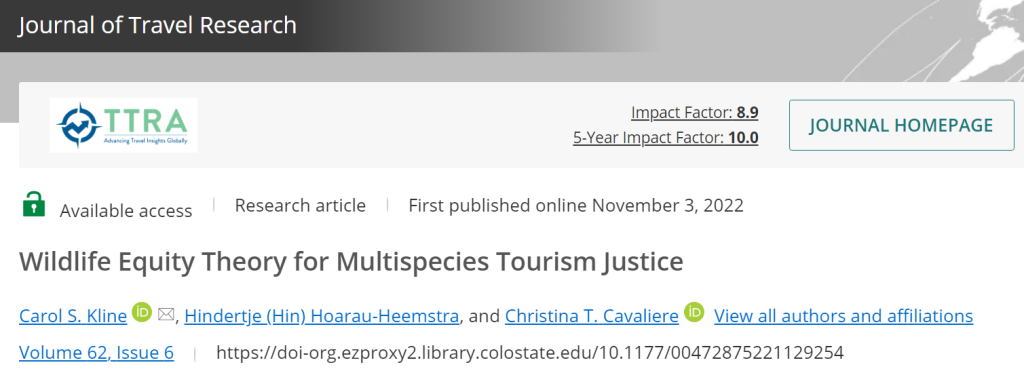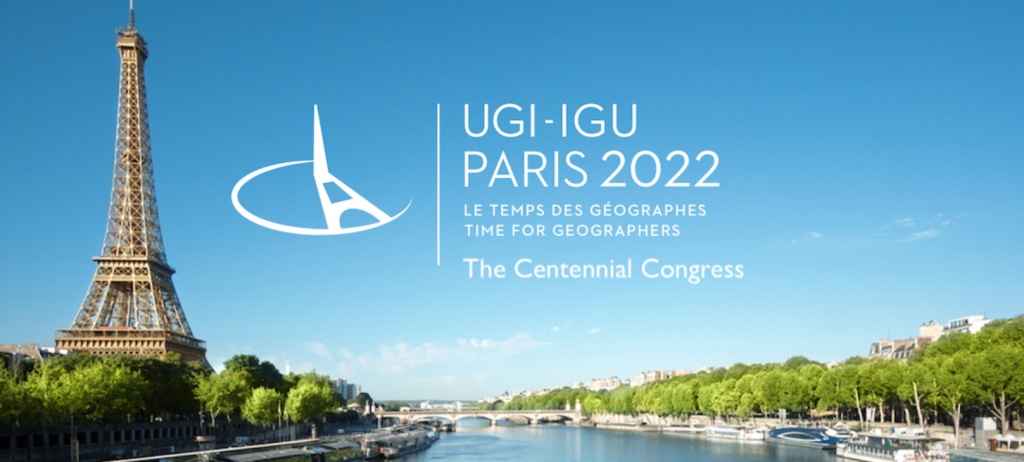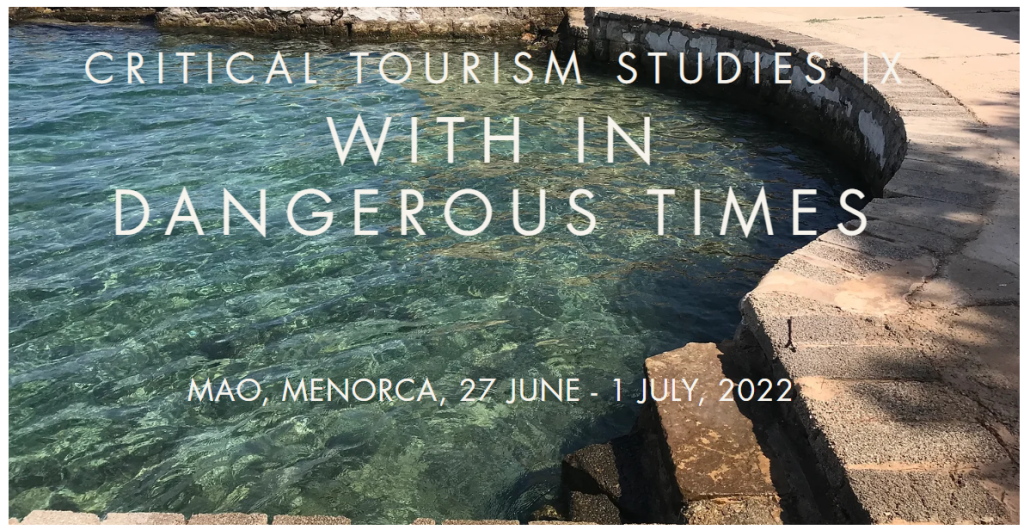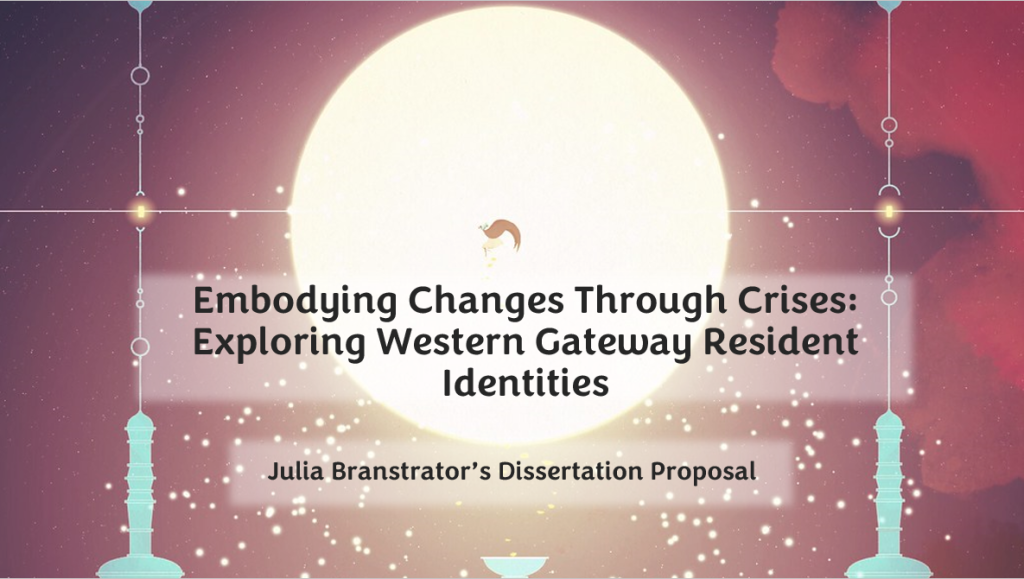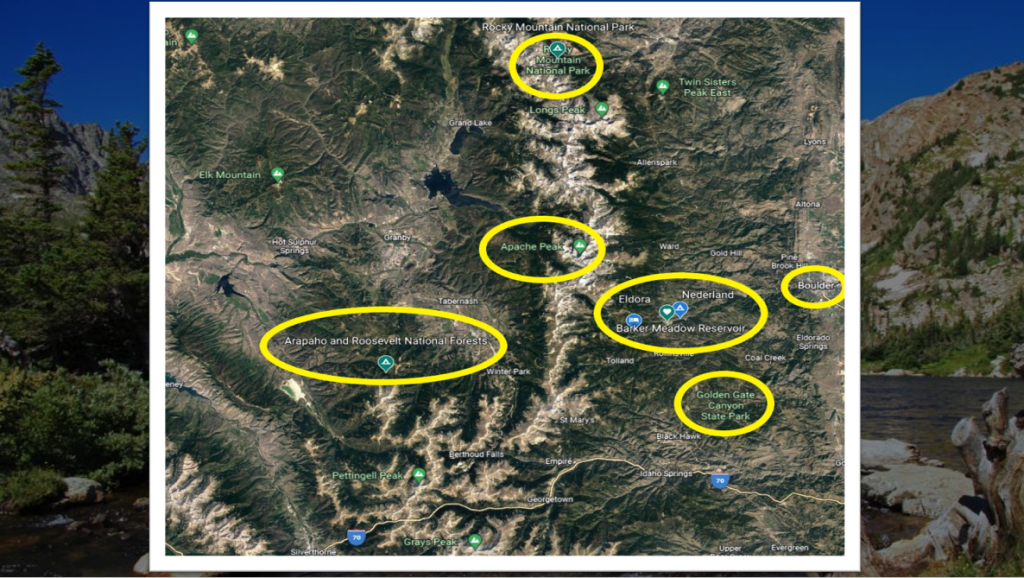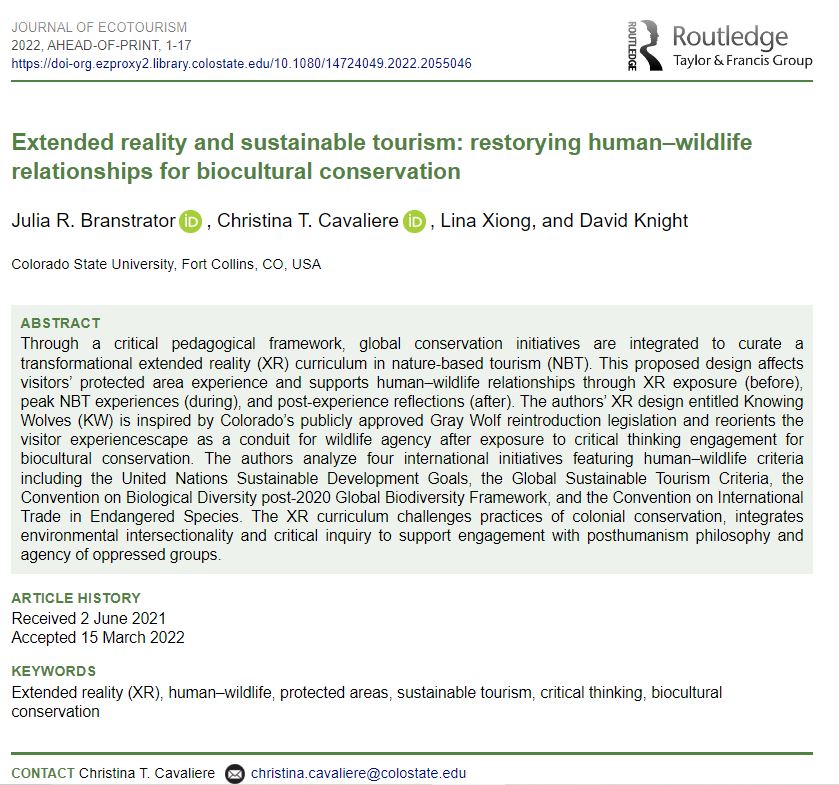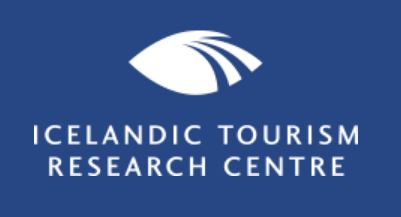Dr. Cavaliere’s Tourism and Conservation Lab is proud to announce its latest publication featured in the journal of Society and Natural Resources!
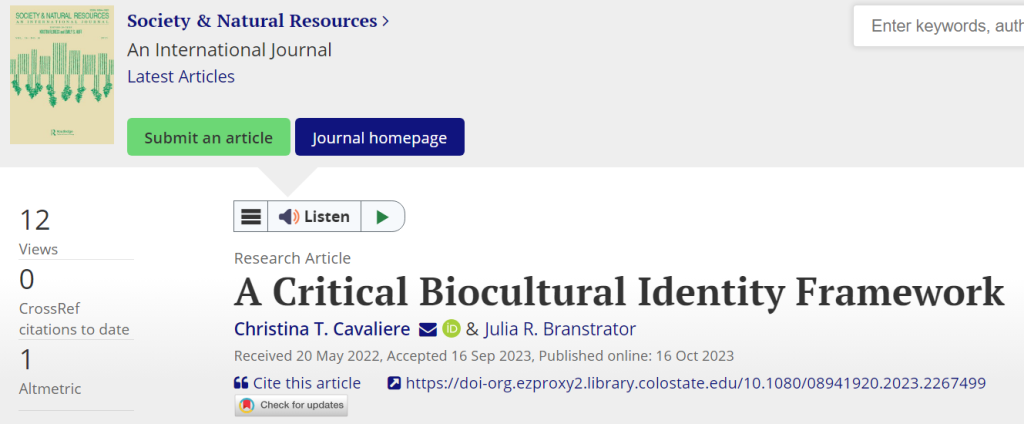
Leading this latest paper, Dr. Cavaliere with co-author Dr. Julia Branstrator, present A Critical Biocultural Identity Framework. This publication analyzes remote fieldwork during the quarantine lockdown period of COVID-19 in the coastal community of Ketchikan, Alaska (May – September 2021).

During this unique window of time of mobility restrictions, residents unpacked their relationships to the coast and encompassing bioregion of Ketchikan, revealing the impacts of overtourism and economic dependence on the multinational conglomerate mass cruise industry.

Presenting in-depth, qualitative semi-structured interviews, the Critical Biocultural Identity Framework expands place identity through critical ecofeminist-posthumanistic epistemologies to situate biocultural identities within the structural power components of Ketchikan. This research contributes thick empirical data to understandings of biocultural identities, which may be described as “the intertwining of social-ecological relationships and diverse knowledges that situate characteristics within bioregional constructs” (Cavaliere & Branstrator, 2023, p.9)
Thematic analysis of data resulted in nine empirical themes contributing to biocultural knowledge including: temporal engagement, emotional associations, interspecies interactions, local knowledge networks, bioregional relationships, ecological intimacies, neolocal resilience, nonverbal expressions, and sensory connections.
Each theme explores aspects of biocultural identities through social-ecological and bioregional contexts. The CBIF positions biocultural identity within social science conservation to resist biocultural homogenization of biodiverse places from neoliberal encroachment via mass cruise tourism.

